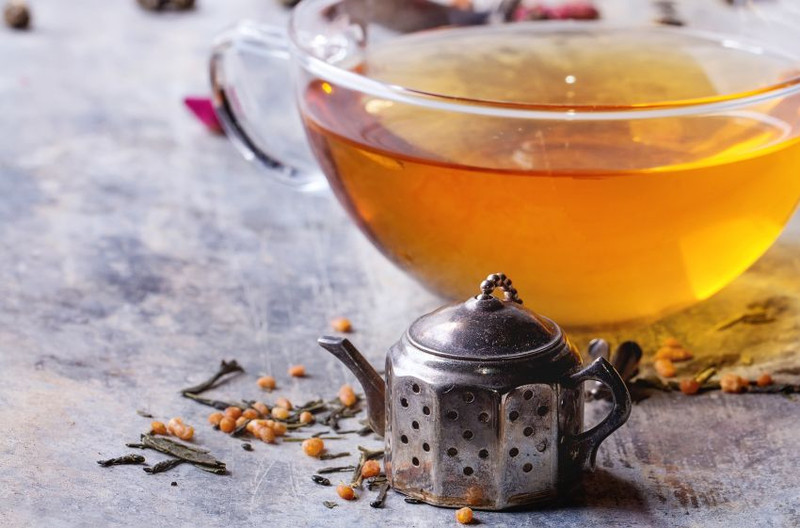The choices people make in life often help define them. Paper or plastic? Winter Olympics or Summer Olympics? For guys, Ginger or Mary Ann? Then there's coffee or tea? Regarding the latter, a handful of drinkers swear by both, but in most cases it's one or the other, and, in terms of health, neither really is a bad choice (unless you abuse them). Most coffees have more caffeine than most teas do, but teas do a bang-up job when it comes to providing health benefits. Not all teas are actually teas. Purists consider only those teas that are derived from the Camellia sinensis plant, a shrub native to India and China, as the real thing, per webmd.com. Only five types of teas fit into that category – green tea, black tea, white tea, oolong tea, and puerh tea, each of which contain antioxidants known as flavonoids, that help in warding off free radicals that can lead to heart disease, clogged arteries, and other serious conditions and diseases. As healthy as teas can be, however, they are not magic bullets – that is, they can't prevent or cure diseases, although ample research has shown them apparently able to reduce the severity of health-related issues, such as lowering high blood pressure and reducing the risk of diabetes and possibly cardiovascular disease, per health.harvard.edu.
Polyphenols Are Deemed Beneficial
Many teas contain health-promoting substances called polyphenols – a group that includes flavonoids – in particular, catechins and epicatechins, which, as shown in various studies, are molecules that offer anti-inflammatory properties as well as antioxidants. It's interesting to note that polyphenols also can be found in coffees. So, folks, drink up, but just not too much. Too much of anything with caffeine in it can produce the jitters, or worse. Like with most anything else, moderation is key. And to all of you iced-tea drinkers out there – the more you sweeten your tea, the less healthy it is for you. A cup of tea usually only contains a few calories, but tea beverages sweetened by processed sugar is loaded with extra calories. If there are any health benefits to green tea consumption, it's probably completely offset by adding sugar, says Qi Sun, an assistant professor in nutrition at Harvard, quoted at health.harvard.edu.An Inventory of Tea's Health Benefits
As a whole, teas can provide a wide assortment of health benefits, with some performing better in some health areas than others, and vice versa. Here are some of the many possible ways in which tea – coffee's little cousin – can rock your health, as healthland.time.com puts it:- Enhance exercise endurance. The catechins in green tea extract improve the body's fat-burning efficiency (for fuel), thus providing better muscle endurance.
- Reduced risk of heart attack. Chalk it up to the polyphenols at work.
- Fight free radicals. By doing this, teas can not only ward off heart disease, it can help protect against neurological degeneration.
- Hydrates the body. Pure water is best in this regard, but tea – and yes, coffee – do help hydrate our bodies.
- Reduced risk of Parkinson's disease.
- Possible protection from ultraviolet rays. Green tea may be a form of sunscreen.
- Brain health. Research has suggested that the polyphenols in green tea can assist the area of the brain involved in learning and memory. Tea could be effective in treating neurological diseases, to include degenerative conditions such as Alzheimer's disease.
- Protect the lungs. Black tea ranks highest among teas for caffeine content, per webmd.com, and it might be able to guard the lungs from cigarette smoke-induced damage.
- Lower cholesterol. An animal study involving antioxidants from oolong tea was found to lower cholesterol levels. One type of oolong tea has been marketed as a weight-loss supplement, but scientific studies are inconclusive in that regard.
- Reduced diabetes risk. Harvard-led studies over time have found tea or coffee drinkers to be at lower risk of diabetes.
- Lower blood pressure. As demonstrated by a study using black tea and human subjects, per mnn.com.
- Reduce blood clots and strokes. Another reported attribute of green tea, which has been found to lower fibrinogen, a substance in our bodies than can cause clots and strokes.

